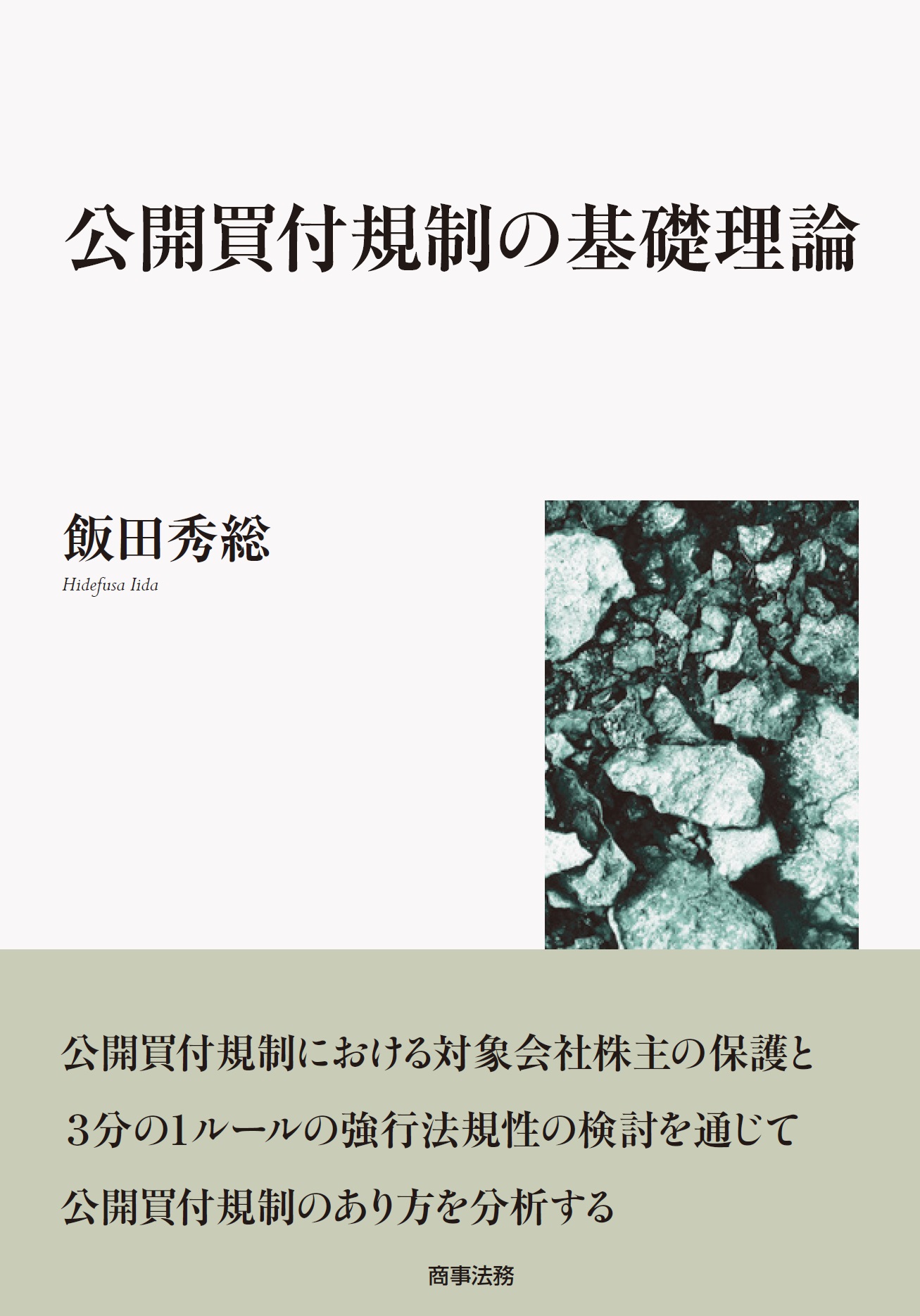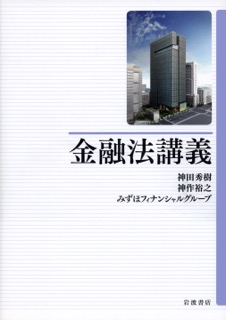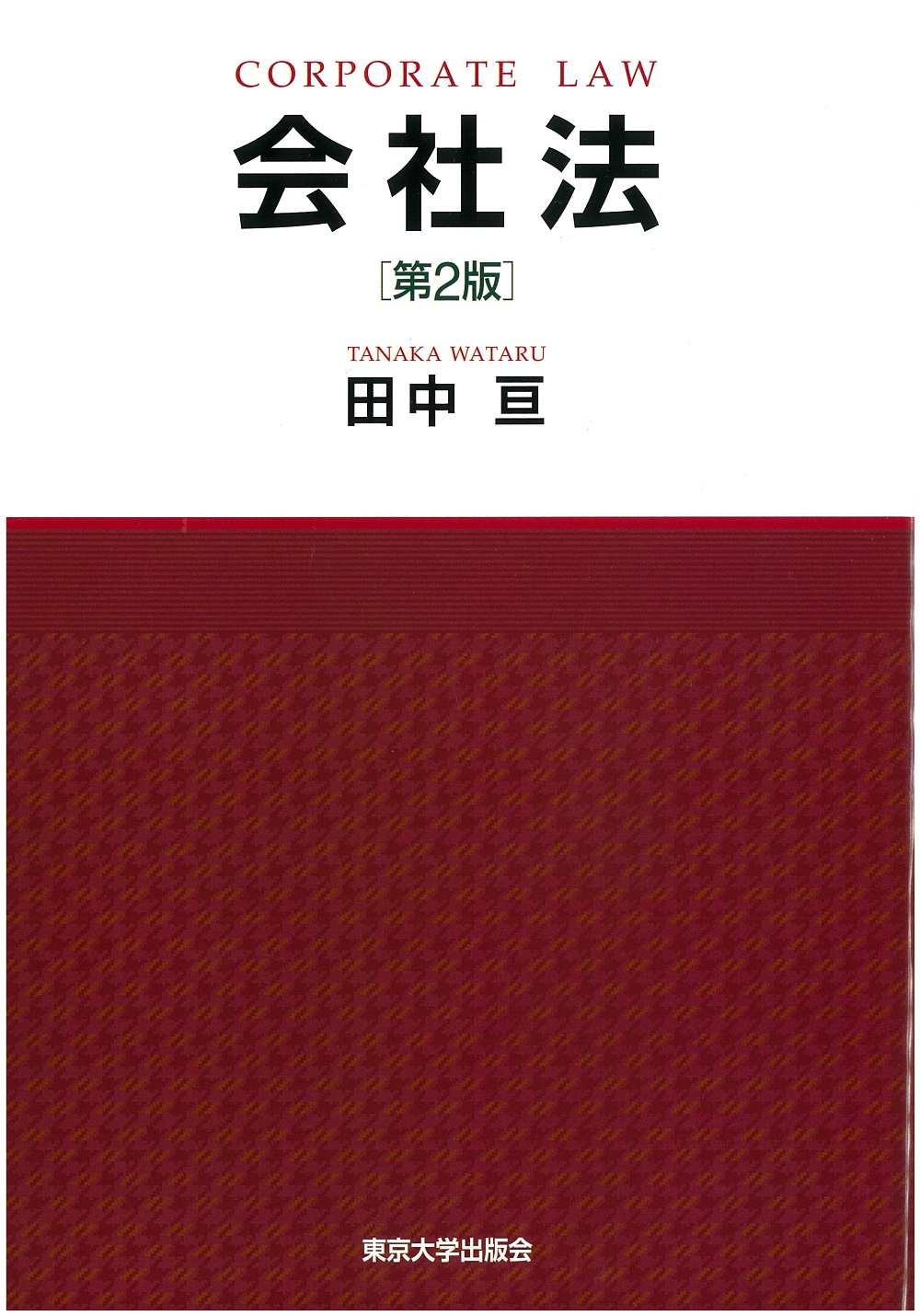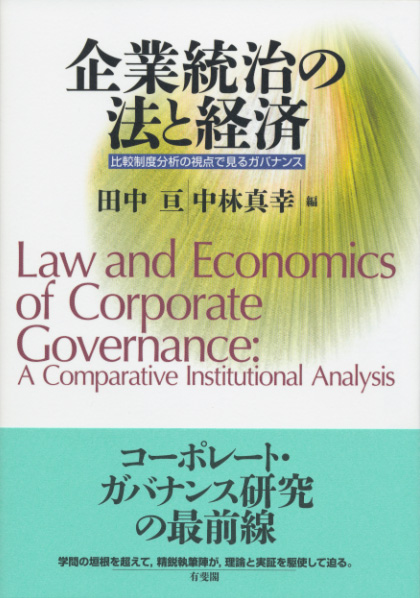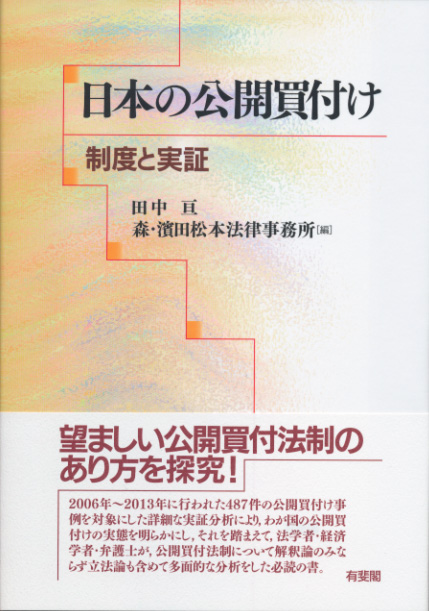
Title
Nihon no Koukai Kaitsuke (Tender Offers in Japan: Systems and Empirical Evidence)
Size
438 pages, A5 format, hardcover
Language
Japanese
Released
October, 2016
ISBN
978-4-641-13758-5
Published by
Yuhikaku Publishing
Book Info
See Book Availability at Library
This book is the result of a collaboration between legal scholars specializing in corporate law and the Financial Instruments and Exchange Act, economists specializing in M&As and finance, and lawyers active in M&A legal affairs at the Mori, Hamada, & Matsumoto Law Offices. The objectives of the research are to clarify the state of tender offers in Japan in the wake of their drastic overhaul by the 2006 revision of the Securities & Exchange Act, and to determine the optimal form of tender offer legislation through interpretation and legislative theory.
This book is unique in that it approaches the subject of tender offers from three different perspectives: law, economics, and business. Another notable feature of the book is that it draws not only on market databases (e.g., RECOF's M&A database), but on a special database of tender offers compiled independently by the Mori, Hamada, & Matsumoto Law Offices. Using these data, a detailed empirical study is conducted on the state of tender offers in Japan and, based on the results, recommendations are made with regard to the legislative system. For example, based on the phenomenon that when plans are disclosed to conduct a squeeze-out following a tender offer, the response rate to the tender offer climbs dramatically (and in a statistically significant manner). In addition, the empirical results show that the period from the tender offer to the squeeze-out is becoming relatively long, suggesting that there may be an issue with coercion in tender offers in Japan. That is, shareholders who choose not to respond to a tender offer are likely to be treated as second-class citizens compared with those who do respond. As a result, shareholders feel coerced into taking up the tender offer. To resolve these issues, a system is proposed that requires the tender offer period to be extended once the success of the offer has been established, during which those shareholders who did not originally respond to the offer have another opportunity to do so (Chapters 2 and 8).
The book consists of two parts. Part 1 discusses various systems (Chapters 1 to 6), and Part 2 provides empirical evidence (Chapters 7 to 11) of these systems. Comments are included at the end of each chapter in Part 1 and at the conclusion of Part 2. The authors of Part 1 use the research results detailed in Part 2 to discuss relevant legal interpretations and legislative theory in order to connect the two parts of the book in an organic manner.
Just over 10 years have passed since the 2006 revision of the Securities & Exchange Act. Given recent developments in business and accumulated theory, as well as judicial precedents, it has become necessary to analyze and reevaluate the entire tender offer system. This includes revising and improving the system and, where necessary, making legislative changes. This book offers opinions on reforms that should be undertaken, providing important empirical data as a basis for the new conceptualization of the tender offer system.
This book was awarded the RECOF Prize, which was the main prize of the 11th M&A Forum Awards.
(Written by TANAKA Wataru, Professor, Institute of Social Science / 2018)



 Find a book
Find a book


 eBook
eBook